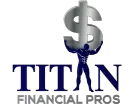Financial Readiness: How Prepared Are You?
Home is where most people feel safe and comfortable. But sometimes — say, when a hurricane, flood, tornado, wildfire, or other disaster strikes — it’s safest to pack up and go to another location.
When it comes to preparing for situations like weather emergencies, financial readiness is as important as a flashlight with fully charged batteries. Leaving your home can be stressful, but knowing that your financial documents are up-to-date, in one place, and portable can make a big difference at a tense time.
Here are some tips for financial readiness in case of an emergency:
Conduct a household inventory. Make a list of your possessions and document it with photos or a video. This could help if you are filing insurance claims. Keep one copy of your inventory in your home on a shelf in a lockable, fireproof file box; keep another in a safe deposit box or another secure location.
Buy a lockable, fireproof file box. Place important documents in the box; keep the box in a secure, accessible location on a shelf in your home so that you can “grab it and go” if the need arises. Among the contents:
– your household inventory
– a list of emergency contacts, including family members who live outside your area
– copies of current prescriptions
– health insurance cards or information
– policy numbers for auto, flood, renter’s, or homeowner’s insurance, and a list of telephone numbers of your insurance companies
– copies of other important financial and family records — or notes about where they are — including deeds, titles, wills, birth and marriage certificates, passports, and relevant employee benefit and retirement documents. Except for wills, keep originals in a safe deposit box or some other location. If you have a will, ask your attorney to keep the original document.
– a list of phone numbers or email addresses of your creditors, financial institutions, landlords, and utility companies (sewer, water, gas, electric, telephone, cable)
– a list of bank, loan, credit card, mortgage, lease, debit and ATM, and investment account numbers
– backups of financial data you keep on your computer
– an extra set of keys for your house and car
– the key to your safe deposit box
– a small amount of cash or traveler’s checks. ATMs or financial institutions may be closed.
– Consider renting a safe deposit box for storage of important documents. Original documents to store in a safe deposit box might include:
– deeds, titles, and other ownership records for your home, autos, RVs, or boats
– credit, lease, and other financial and payment agreements
– birth certificates, naturalization papers, and Social Security cards
– marriage license/divorce papers and child custody papers
– passports and military papers (if you need these regularly, you could place the originals in your fireproof box and a copy in your safe deposit box)
– appraisals of expensive jewelry and heirlooms
– certificates for stocks, bonds, and other investments and retirement accounts trust agreements
– living wills, powers of attorney, and health care powers of attorney insurance policies
– home improvement records
– household inventory documentation
– a copy of your will
Choose an out-of-town contact. Ask an out-of-town friend or relative to be the point of contact for your family, and make sure everyone in your family has the information. Update all your information. Review the contents of your household inventory, your fireproof box, safe deposit box, and the information for your out-of-town contact at least once a year.
These are just some facts about financial readiness that you might not have known about. Hopefully you found these helpful. If you would like to learn even more about how you can increase the bottom line of your own business, then you are more than welcome to contact us and we will take a look at your unique situation and offer some sensible solutions that would work best for you!
“TITAN Financial Pros provide an informational service only and are not responsible for any investments made applying this information. The results described are not distinctive and are not guarantees of future income. Any assumption contains risk and is 100% the responsibility of the individual to assess the risks/rewards involved. We bear no liability assumed or implied for your application of the information shared from this content. This information is for educational and entertainment purposes only.”
Is your business losing money?
Click the button below to get our FREE report on the 5 Most Common Ways Businesses Lose Money and more importantly,
HOW YOU CAN FIX THEM!



